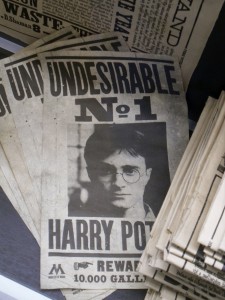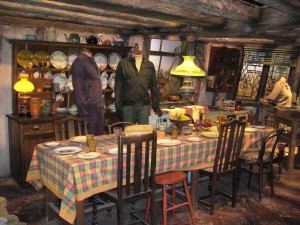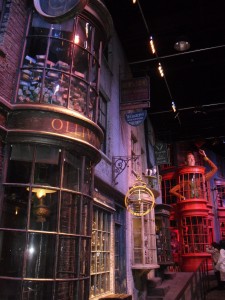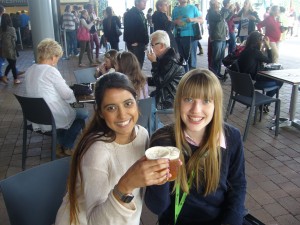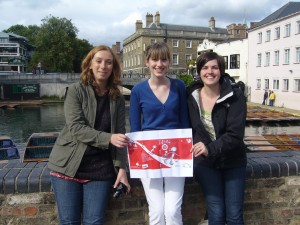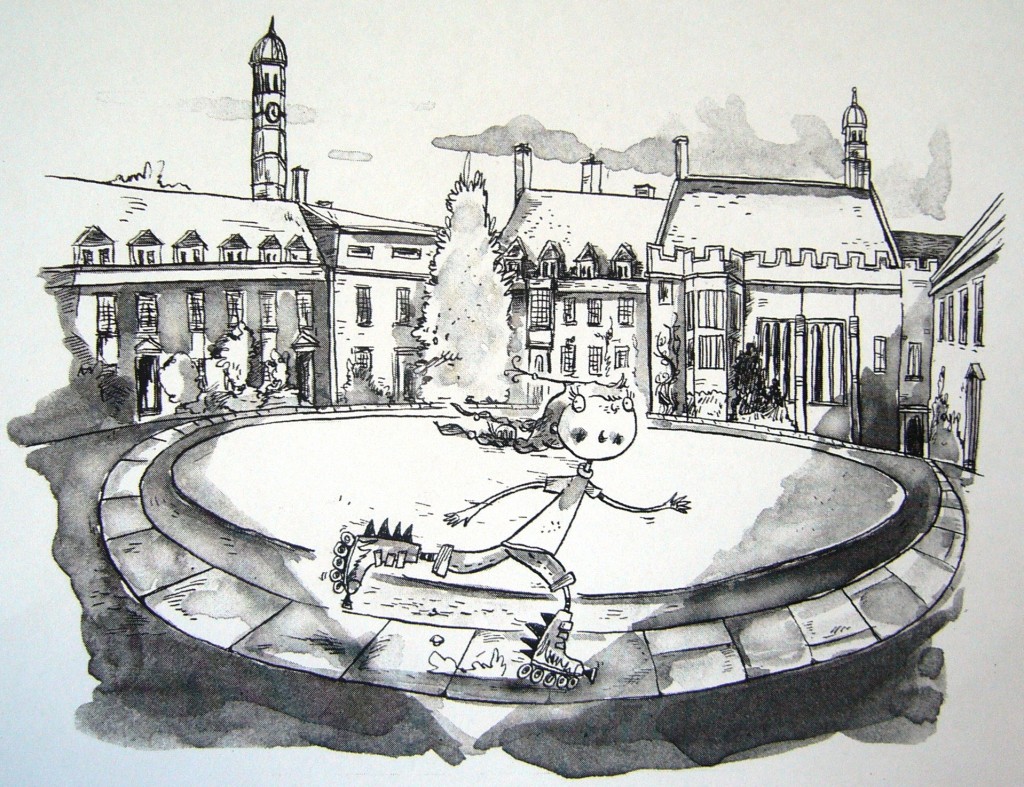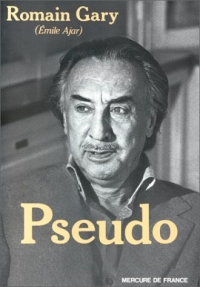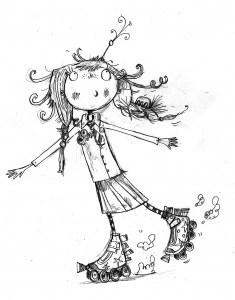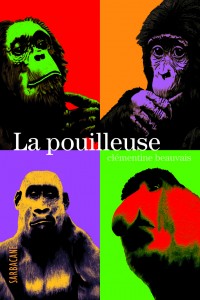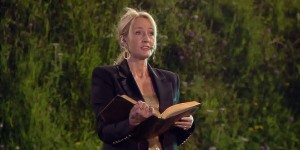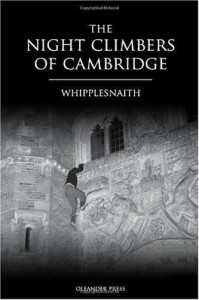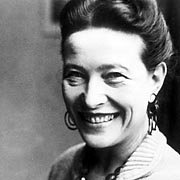 Salut, Simone! How’s it going up there? Not much has changed here since you left us, I’m afraid. Well, ok, some things have changed, but not as many as we’d wish – not as many as you’d wish. Still second sex in most things. Even in children’s and young adult literature, supposedly ‘our’ domain, as mothers, educators and homemakers… Here’s my latest little (big) annoyance on the matter. Ready for the rant?
Salut, Simone! How’s it going up there? Not much has changed here since you left us, I’m afraid. Well, ok, some things have changed, but not as many as we’d wish – not as many as you’d wish. Still second sex in most things. Even in children’s and young adult literature, supposedly ‘our’ domain, as mothers, educators and homemakers… Here’s my latest little (big) annoyance on the matter. Ready for the rant?
Last week a wonderful blog post was published by lady business on gender balance in YA and children’s literature. It was written in response to the claims that ‘women dominate’ this type of literature, which you’d be forgiven for thinking if all you know about it is Harry Potter, Twilight and the Hunger Games, and that female protagonists dominate it too.
The blog post looks in incredible statistical detail at many awards in young adult and children’s literature and shows that in fact, not only male protagonists do exist in vast quantities in this type of literature, and male authors and illustrators are not unheard of, but also that this pretended rara avis is also overrepresented in the award industry.
In other words, there may be fewer male authors, but they win proportionally more awards; there may be fewer male protagonists, but they’re a pretty good predictor of whether a book will win an award.
I’m massively oversimplifying this: please go and look at the blog post in detail.
Anyway, as it happens, a year ago, I did exactly the same thing on my French blog. I’d long had an inkling that male authors and illustrators were disproportionately represented in awards and prizes for children’s literature. An analysis of the main French awards confirmed what I’d suspected. Children’s and young adult literature in France is written predominantly by women (2/3rds), but this proportion never applies to the most prestigious awards. One of them (a lifetime achievement award) has never been given to a woman.
I also looked at the representation of children’s authors in specialised media, and noted that men are disproportionately more likely to be interviewed and their books disproportionately more likely to be reviewed.
At the time, many of my author and illustrator friends supported me, and the blog post was shared by the French Children’s Authors & Illustrators Association, but many people were extremely shocked and infuriated by it. A number of Anonymous supporters of patriarchy readers commented that (old chestnut alert) ‘You should look at race and class imbalance, that’s the real problem!’ or ‘You basically hate men!’ or even ‘Why do we need to be so ridiculously punctilious about statistics??’ (of course if I’d just said what I ‘felt’ was true, I would have been accused of giving no evidence.)
One of them, a prominent male children’s author, shared the link on his Facebook page (I’m not friends with him, but a common friend helpfully screencapped it for me) saying that it was ‘the stupidest thing he’d seen in a long time’. Many of his friends ranted about it until he put a stop to the conversation: ‘Hey, wait! I looked her up, and she’s hot! I take back what I said!’.
Yes, Simone, I know. 2012.
Anyway, the important things are:
1) People don’t want to believe that this is true. Especially authors and editors, who in a female-dominated environment cannot imagine that there could still be institutional sexism. Even when given clear, uncontroversial evidence, they will still say that it’s not true.This applies to men and women.
2) No one here is arguing that anyone is doing that on purpose. It would be a ridiculous thing to argue. Rather, we are saying that there is still a bias in favour of male authors and illustrators, even when most judges are women. In fact, perhaps, in some way, because most judges are women. It’s not the fault of one particular person and it’s not the fault of ‘men’. It’s definitely not the fault of all the wonderful male authors and illustrators who win prizes.
3) The reasons for male domination in children’s and young adult literature are complex. Some people in the comments to my blog post noted that women writers are more likely to be perceived as ‘hobby’ or ‘part-time’ writers, and are more likely to be still in charge of much of the household tasks. Male writers, well, it’s their job. Men are perhaps better at selling themselves to a female-dominated world. They stand out.
4) As lady business points out, this is about asking questions, not providing answers. Institutional sexism is not a monolithic monster. It has countless ramifications. It’s a hydra. Cut one head and six new ones appear. Like Herakles, we must find a strategy to prevent them from growing back.
Blogging about it, sharing blog posts about it, talking about it are some of these strategies.
Clem x
P.S. for those who are interested, here’s the translation of my hypotheses for the overrepresentation of men in children’s literature awards.
– Men are simply objectively better than women in writing and illustrating children’s books. Whether it’s natural talent or just better artistic education, their books on average are better than women’s books. As you may have guessed, I don’t adhere very much to this explanation.
– In children’s literature like in many other domains, men are the norm and women the Other: in other words, everyone can identify with the masculine, but women are the only ones who can identify with the feminine. As a result of this unconscious prejudice, male creations are perceived as the most representative and normative examples of human experience, even when women are the ones judging them.
– Another prejudice may be that men are seen as more intelligent and more serious than women. Awarding prizes to male author and illustrators may be an unconscious strategy to help validate children’s literature in the eyes of everyone else. If men do it, it must be an art form, not just a hobby.
– Whether or not it’s conscious, men may be better at imposing themselves than women; they may know better how to put forward their work, may be more ambitious and competitive, optimise their networks, and may be less likely to be falsely modest.
– Moulded by an educational system where male thinking is valued, and entrenched in a society that perpetuates that myth, women may be simply convinced, unconsciously, that male productions are better than perhaps their very own.




